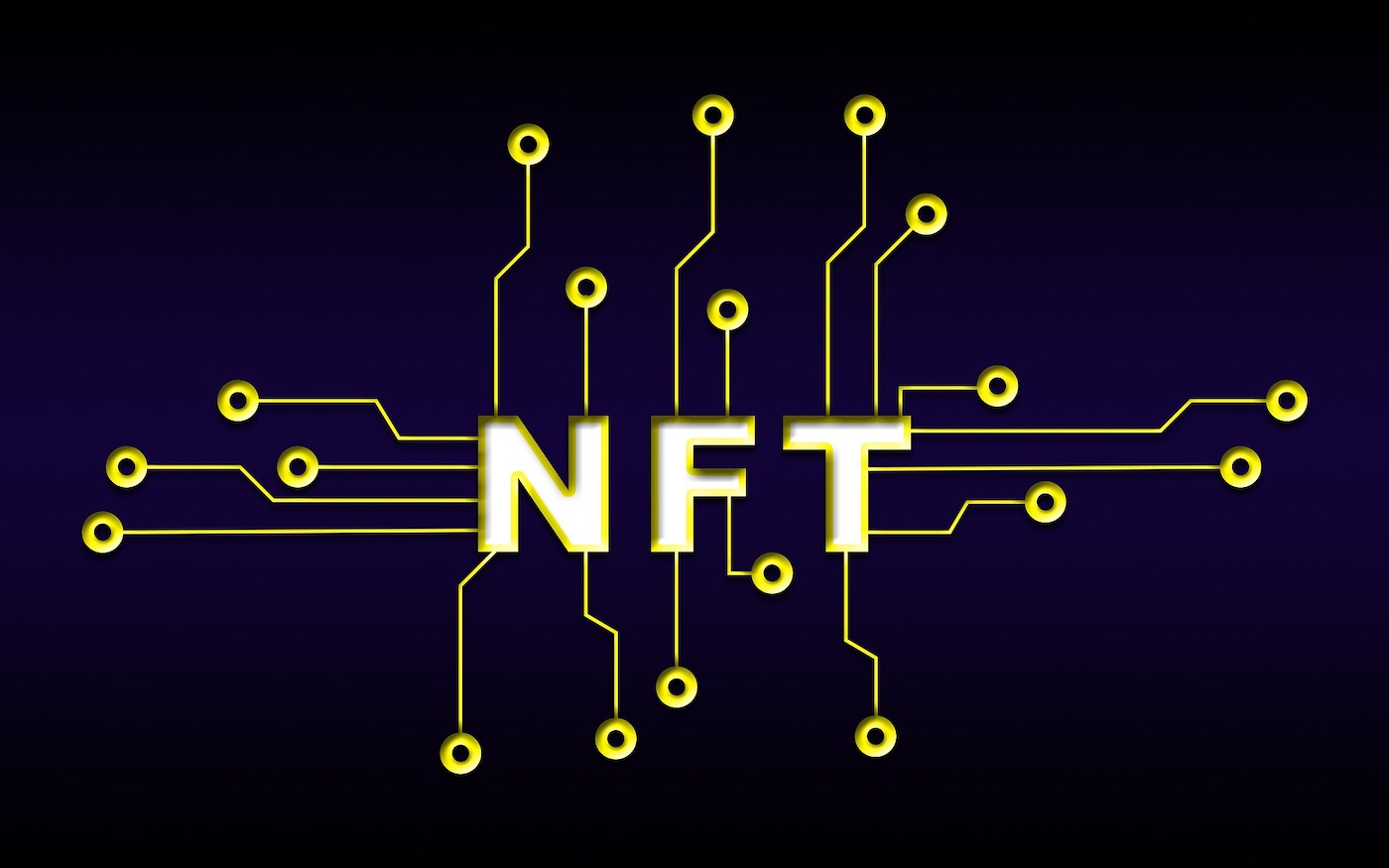NFTs have gained significant popularity in recent years but also present several legal issues and risks that buyers, sellers, and creators should be aware of. Here are some of the critical legal issues and risks associated with NFTs:
- Intellectual property infringement: NFTs are often used to represent digital art, music, and other creative works. However, the creation and sale of these works can raise intellectual property infringement issues if the creator does not own the underlying rights to the work.
- Lack of regulation: The market for NFTs needs to be more regulated, which can make it difficult to determine the legal status of these assets. This lack of regulation can also make it easier for fraudsters to deceive buyers.
- Price volatility: The value of NFTs can fluctuate significantly, and buyers may need to be aware of the risks associated with investing in these assets. It can lead to financial losses if the value of the NFT drops after purchase.
- Smart contract issues: NFTs are often created and traded using smart contracts, which can be subject to bugs, errors, and other problems that can compromise the integrity of the contract.
- The production and distribution of NFTs may demand high levels of energy and lead to carbon emissions, which can be a cause for environmental worry.
It’s essential for buyers, sellers, and creators of NFTs to be aware of these legal issues and risks and to take appropriate steps to mitigate them. It may include conducting due diligence on the underlying assets, seeking legal advice, and carefully evaluating the risks associated with NFTs before investing. As with any emerging technology or investment, the legal landscape around NFTs will likely evolve, and it’s crucial to stay current on the latest developments in this area.
What is an NFT
An NFT, or non-fungible token, is a unique digital asset representing ownership of specific content or data, such as a digital artwork, music file, or video clip. NFTs are stored on a blockchain, which provides a secure and transparent record of ownership and transaction history.
Each NFT is verified by a smart contract, which ensures the owner has the right to sell, trade, or display the digital asset. Because NFTs are unique and cannot be replicated, they have become popular among collectors and investors, who see them as a way to invest in and support digital artists and creators.
The value of an NFT is determined by supply and demand, as well as the perceived value and popularity of the underlying content. NFTs can be bought and sold on various marketplaces and platforms, such as OpenSea, Nifty Gateway, and Rarible.

While the market for NFTs is still relatively new and evolving, it has already generated significant attention and controversy, with some critics questioning the value and sustainability of investing in digital assets with no physical or intrinsic value.
Risks and legal issues around NFTs
NFTs pose several legal and regulatory risks, including potential copyright and intellectual property disputes, money laundering concerns, and security vulnerabilities. The lack of clear regulations and standards in the NFT market further complicates these issues. As such, creators and buyers of NFTs should be aware of these risks and take appropriate steps to mitigate them.
Copyright, intellectual property rights, ownership rights
NFTs raise complex issues around copyright, intellectual property, and ownership rights. When someone creates an NFT, they may be claiming ownership of a particular piece of digital content, such as an artwork or music. However, this claim of ownership does not necessarily mean that the creator owns the underlying intellectual property rights to that content.
For example, if an artist creates an NFT of their artwork, they may own the NFT itself but not the copyright to the artwork. In order to legally sell or license the artwork, they would need to have the appropriate intellectual property rights.
Similarly, if someone creates an NFT of a video game item or another digital asset, they may not own that item’s underlying intellectual property rights. It could lead to legal disputes if the owner of the intellectual property objects to the sale or use of the NFT.
Some NFT marketplaces and platforms are implementing measures to verify the ownership and authenticity of digital content before it can be turned into an NFT. Additionally, some creators are exploring alternative licensing models, such as open licenses or creative commons licenses, that allow for greater flexibility in how their content can be used and shared.
Overall, the legal issues around ownership, copyright, and intellectual property rights in NFTs are complex and still evolving. Creators and buyers of NFTs should be aware of these issues and seek appropriate legal advice if necessary to ensure that they comply with applicable laws and protect their rights.
Privacy and data protection laws
NFTs are a relatively new technology, and there are still many unanswered questions about how privacy and data protection laws apply to them. However, there are some important considerations to keep in mind.
Firstly, NFTs can contain personal information about their creators and previous owners, such as their names, email addresses, and transaction histories. As such, anyone involved in creating or trading NFTs should be aware of their obligations under data protection laws, such as the General Data Protection Regulation (GDPR) in the European Union.
Secondly, NFTs are often created and traded on blockchain networks, which are decentralized and distributed across many nodes. It can make it challenging to identify who has access to personal information stored on the blockchain and to enforce data protection laws against them.
Some blockchain networks and NFT marketplaces implement privacy-enhancing technologies such as zero-knowledge proofs and decentralized identity solutions to address these concerns. These technologies protect users’ personal information while allowing them to participate in the NFT market.
As the use of NFTs continues to grow and mature, regulators will likely develop more guidance and regulations around privacy and data protection in this context. In the meantime, NFT creators and traders should be mindful of their obligations under applicable data protection laws and take steps to protect their personal information and that of their customers.
Money laundering
Money laundering is a concern in any financial market, and NFTs are no exception. Because NFTs are not subject to the same regulations and scrutiny as traditional financial assets, they may be attractive to money launderers looking to conceal the origins of their funds.
One potential method of money laundering in the NFT market is using “mixers” or “tumblers,” which are services that allow users to obfuscate the source and destination of their cryptocurrency transactions. By using a mixer or tumbler to mix their funds with those of other users, a money launderer could attempt to hide the trail of their transactions.
Another potential risk is the use of NFTs as a means of transferring value between parties. Because NFTs can be traded and sold anonymously, they could be used to move illicit funds or assets without detection.
To address these risks, some platforms and marketplaces that facilitate NFT transactions are implementing Know Your Customer (KYC) and Anti-Money Laundering (AML) measures to verify the identities of their users and monitor transactions for suspicious activity. However, there still needs to be more precise regulations governing NFTs, which makes it difficult to detect and prevent money laundering in this market.
As the market for NFTs continues to evolve, it will be necessary for regulators and law enforcement agencies to stay abreast of these risks and take appropriate measures to prevent money laundering and other illicit activities in the NFT market.
Security

NFTs are digital assets that are stored on a blockchain, and like any other digital asset, they are susceptible to various security risks. Some common security issues associated with NFTs include:
- Smart contract vulnerabilities: NFTs are often created and traded using smart contracts, which are self-executing contracts with the terms of the agreement written into code. Smart contracts are vulnerable to coding errors, which attackers could exploit to steal or manipulate NFTs.
- Private key management: To transfer or sell an NFT, the owner must have access to the private key associated with the blockchain address where the NFT is stored. If the private key is lost or stolen, the owner may lose access to the NFT.
- Centralized platform risks: Many NFT marketplaces and platforms are centralized, meaning they are owned and controlled by a single entity. It creates a single point of failure that attackers could exploit.
- Phishing and social engineering attacks: Attackers may use phishing or social engineering tactics to trick users into giving away their private keys or other sensitive information.
To mitigate these risks, NFT owners should follow best practices for private key management, such as storing their keys in a secure hardware wallet and avoiding sharing their keys with anyone.
NFT platforms and marketplaces should implement strong security measures, such as multi-factor authentication and regular security audits, to protect users’ assets. Users should also be vigilant for phishing and social engineering attacks and cautious about clicking on links or downloading files from unknown sources.
Estate and succession planning
Estate and succession planning in the context of NFTs requires careful consideration of these assets’ unique properties and challenges. Collectors and their heirs should work with qualified professionals to ensure that their NFTs are managed and transferred in a legally compliant and secure manner.
The unique nature of NFTs means that ownership and control must be carefully documented and managed. It may involve establishing legal agreements that detail how the NFTs will be owned, transferred, and collected over time.
Collectors and their heirs must be able to securely and sustainably access and manage their digital assets, including NFTs. It may involve using digital wallets, password management tools, and other technologies to ensure that NFTs are protected and accessible over time.
Risk of fraud
NFTs also pose a risk of fraud, as the digital nature of these assets makes it easier for scammers to create fake NFTs and deceive buyers. The lack of regulation and oversight in the NFT market further exacerbates this risk. There currently needs to be standardized procedures or mechanisms to verify the authenticity of NFTs.
NFT marketplaces and platforms are implementing various measures, such as stricter identity verification procedures, conducting independent audits of NFT issuers, and using blockchain technology to create tamper-proof records of ownership and authenticity.
However, these measures are still early and may need to be more foolproof. As such, buyers of NFTs should exercise caution and conduct their due diligence to ensure they are buying genuine and valuable assets.
Taxes
The tax treatment of NFTs still needs to be clarified in many jurisdictions, as tax laws are often slow to catch up with emerging technologies. However, in general, NFTs are likely to be subject to capital gains tax when they are sold, as they are considered to be capital assets.
The exact tax treatment will depend on various factors, such as the buyer’s country of residence, the ownership duration, and the profit realized from the sale. In some cases, NFTs may also be subject to additional taxes, such as value-added tax (VAT) or sales tax.
To ensure compliance with tax laws, buyers and sellers of NFTs should keep detailed records of their transactions, including the purchase price, sale price, and any associated fees. They should also consult with a tax professional to understand the specific tax implications of their NFT transactions and to ensure that they comply with all relevant tax laws.
The rise of NFTs
NFTs, or non-fungible tokens, have become increasingly popular in recent years, with many seeing them as a new frontier for digital art, collectibles, and other forms of media. One of the main drivers behind the rise of NFTs is their ability to establish digital scarcity and uniqueness, allowing creators to sell one-of-a-kind digital items that are authenticated on a blockchain.
Another factor contributing to the rise of NFTs is the increasing acceptance of cryptocurrencies and blockchain technology. NFTs are created and traded on a blockchain, providing attractive transparency and security to many buyers and sellers. This has led to interest in NFTs among crypto enthusiasts, traditional art collectors, and investors.
The high-profile sales of NFTs have also helped to fuel their popularity. In March 2021, an NFT created by digital artist Beeple sold for a record-breaking $69 million at a Christie’s auction, drawing widespread attention to the potential of NFTs as a new asset class.
The future of the NFT regulation
As NFTs continue gaining popularity and market share, there is increasing interest in the regulatory landscape surrounding them. There needs to be more straightforward regulation governing NFTs, which has led to some uncertainty and challenges for creators, collectors, and traders in the NFT market.
However, there are indications that regulatory bodies are beginning to take a closer look at NFTs and their associated risks and opportunities. In the United States, the Securities and Exchange Commission (SEC) has warned investors about the potential risks of investing in NFTs, particularly those marketed as securities. The SEC has also indicated that it may take enforcement action against individuals or companies that violate securities laws in the context of NFTs.
In addition to securities laws, NFTs may also be subject to other types of regulation, such as copyright and intellectual property laws. For example, creators and sellers of NFTs may need licenses or permissions to use copyrighted works or trademarks in their NFTs.
As the regulatory landscape around NFTs evolves, we will likely see new laws and regulations emerge to govern these unique digital assets. These may include requirements for disclosure, investor protections, anti-fraud measures, and rules around the creation and sale of NFTs.
Overall, the future of the NFT regulatory landscape is still uncertain, but it’s clear that there is growing interest in these digital assets from regulators, investors, and other stakeholders. As the market for NFTs continues to evolve, it will be vital for creators, collectors, and traders to stay abreast of new developments in the regulatory landscape and to comply with any applicable laws and regulations.















